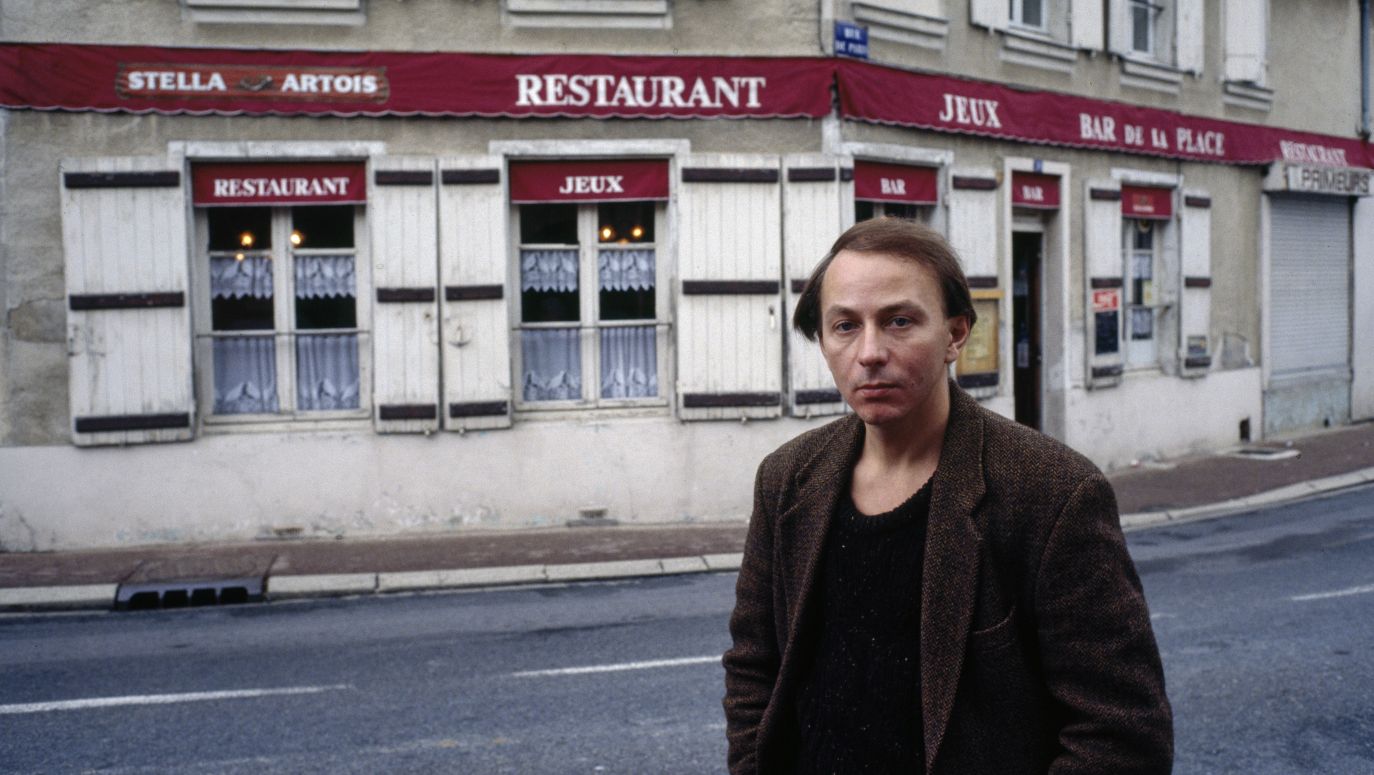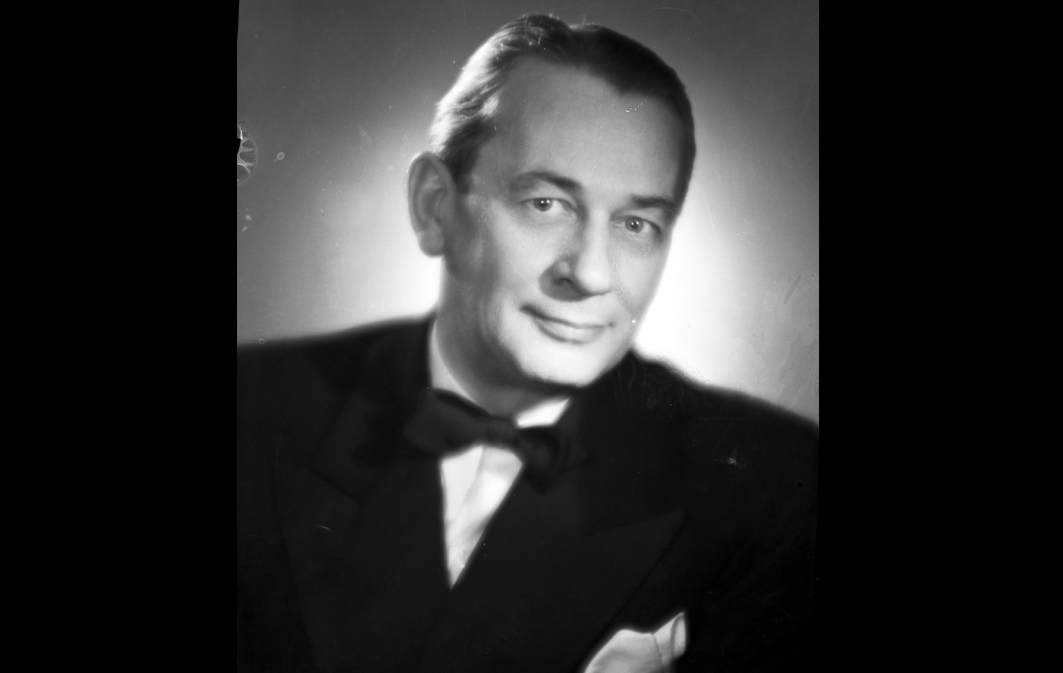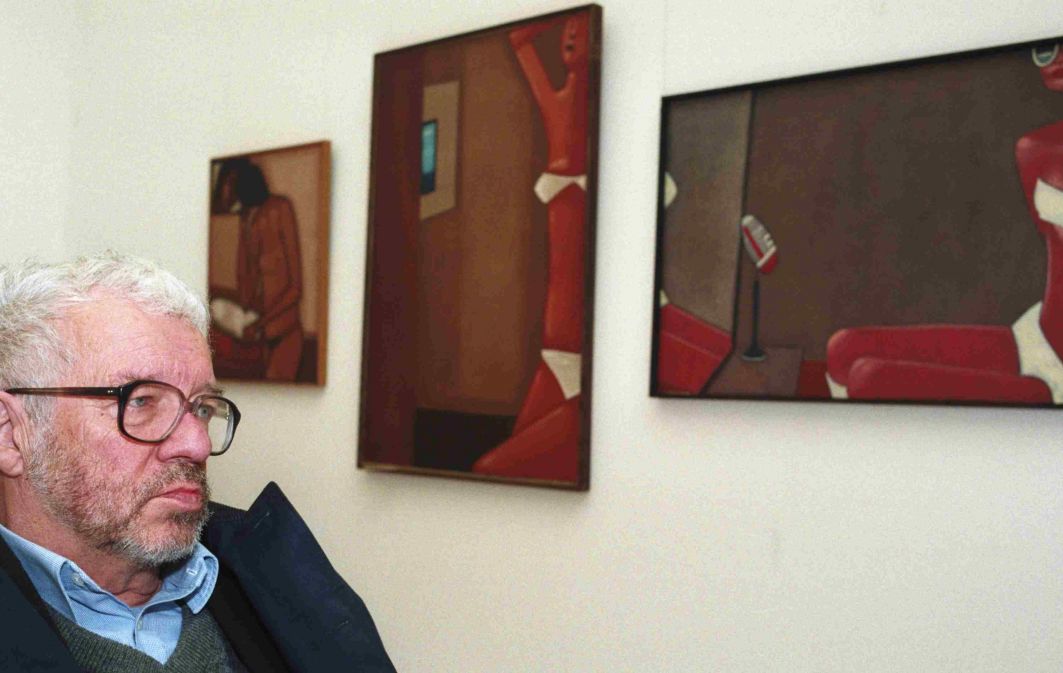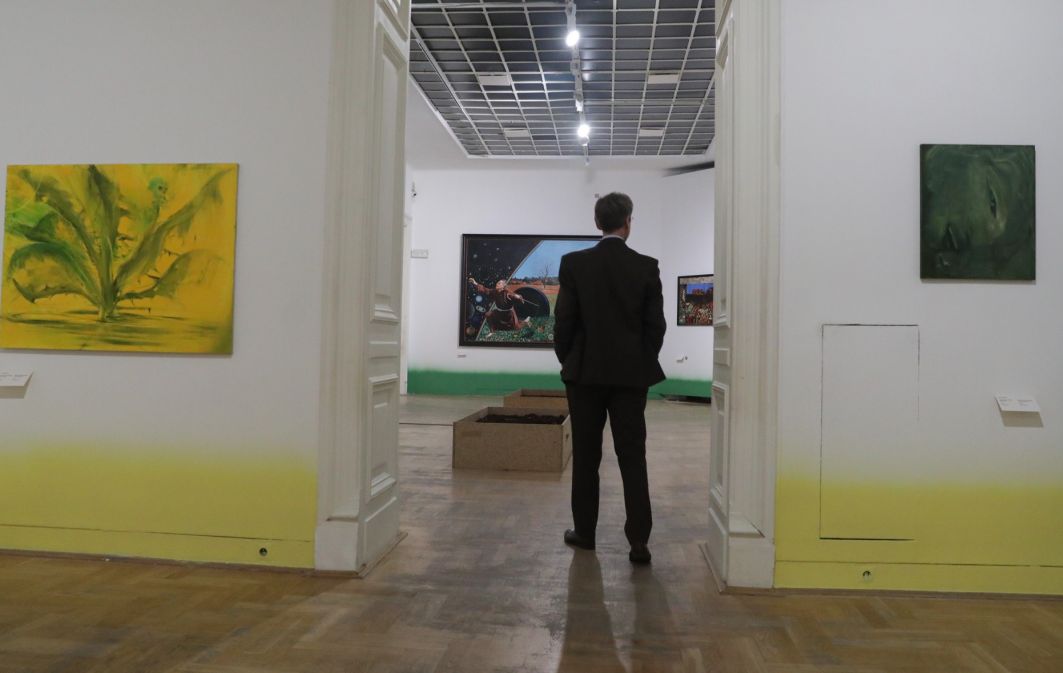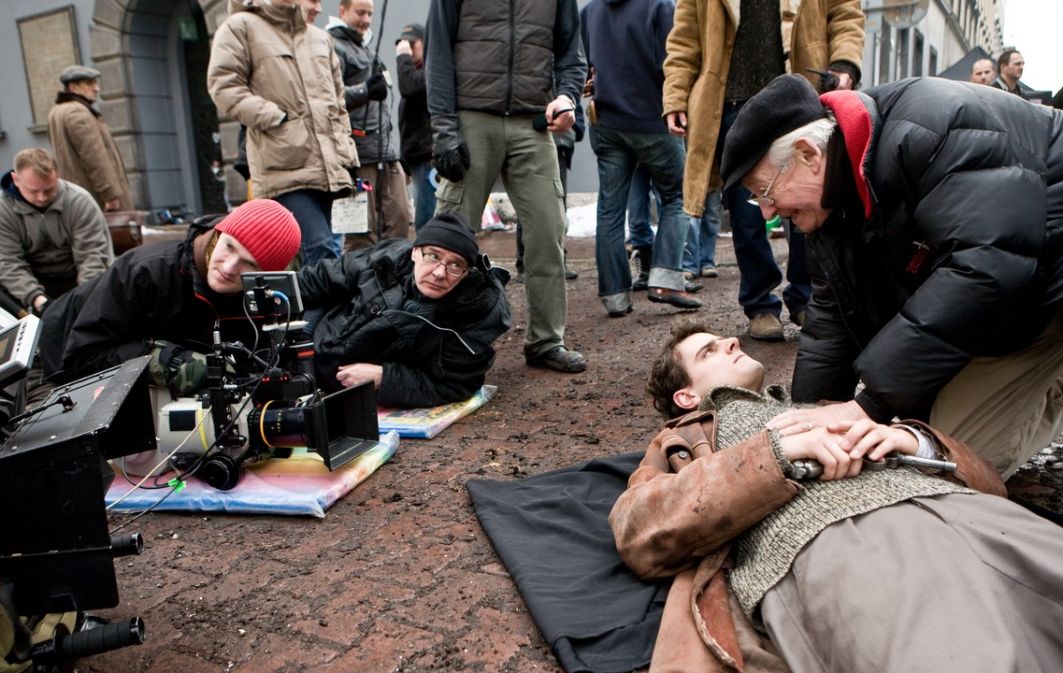In October this year, the eagerly awaited, latest novel by Michel Houellebecq, “Annihilations”, in the Polish translation by Beata Geppert, hit the bookstores. About how eagerly – the decision of the publishing house W.A.B. about accelerating the book launch was accelerated by a week. The results were both unforeseen and deplorable – the first batch of books fell apart in the hands and had blurred print. Of course, everything has been remedied and the copies currently available in bookstores are technically complete.
Michel Huellebecq is a very famous writer in France and in the world. His career, which began in 1994 with the novel “Extension du domaine da la lutte” gained momentum in 1998 with the novel Particules Elementaires and since then each new book by the writer has been eagerly awaited. The press, always ready for exaggerations and pompous generalizations, hailed Huellebecq as a prophet of our times, because the premiere of “Submission” about the takeover of power in France by Islamists coincided with an attack by Islamist militants on the offices of the satirical weekly “Charlie Hebdo”, which resulted in many deaths and shocked the Western public opinion. In addition, the last issue of Charlie Hebdo before the attack had a caricature of the writer on the cover, and the caption jokingly referred to him as a prophet.
The foundations for Houellebecq's prophetic fame had already been laid by the earlier novel "Platform", where the novel's Islamist attack on the tourist center was supposed to anticipate the tragedy of the World Trade Center.
 SIGN UP TO OUR PAGE
SIGN UP TO OUR PAGE

In turn, the novel “Serotonin”, in which – apart from the depression suggested by the title - there is a theme of farmers' protests against state policy, was supposed to anticipate the “yellow vest” movement, which broke out two weeks after the book was published in bookstores. After “Serotonin”, the faith in the writer’s prophetic abilities was strengthened even more and one of the great disappointments of the latest novel “Annihilations” is that Houellebecq did not foresee the war in Ukraine. And it would be neat - the French premiere was in January, Russia's attack on Ukraine in February.
The recent Polish Nobel Prize winner, Olga Tokarczuk, somewhere expressed the view that, to tone it down a bit, literature is not for everyone*. For those in search of simple tips and warnings, reading literally and looking for current signposts in it – definitely not. There are also true readers for whom it is not difficult to understand metaphors and contexts, but not yet “adult” to treat obscenities without reflexes of resentment and indignation. For the more sensitive, the explicitly veristic eroticism in Huellebecq’s books may seem like pornography.
The writer also does not value Christianity or any religion. In an interview for the monthly “Lire” he said that “believing in one God is an act of total imbecility, I can’t find another word for it. And the stupidest religion is Islam. Reading the Koran is overwhelming ... overwhelming! The Bible is at least beautiful, because The Jews had a bloody literary talent ... and for that you can forgive a lot”. The interview was in 2001 and the writer no longer needs police protection.
Houellebecq hates corporate capitalism and the social system he creates, but he gets everyone - liberal intellectuals, feminists, elderly hippies. The enfant terrible of European literature, blunt, malicious and cynical. His books do not bring any hope, and the human condition is loneliness in a soulless and absurd world. Can the latest novel of such a person be put under the Christmas tree in a decent home?
Everything seems to indicate that it cannot. The main character, Paul Raison (reason) has not spoken to his wife Prudence (prudence) for ten years. Paul’s mother, when she was still alive, spent her days in the shed. The retired art restorer avoided contact with Paul’s father, Édouard, while sculpting. The hero’s younger brother, Aurélien, is married to a journalist greedy for success and money, by the way, a feminist, Indy. Her progressive stance is evidenced by the fact that she ordered a black child in California with a surrogate, telling her family, falsely, that Aurelian was infertile. She gave the child the Old French name Godefroy, because tradition can and must be deconstructed.
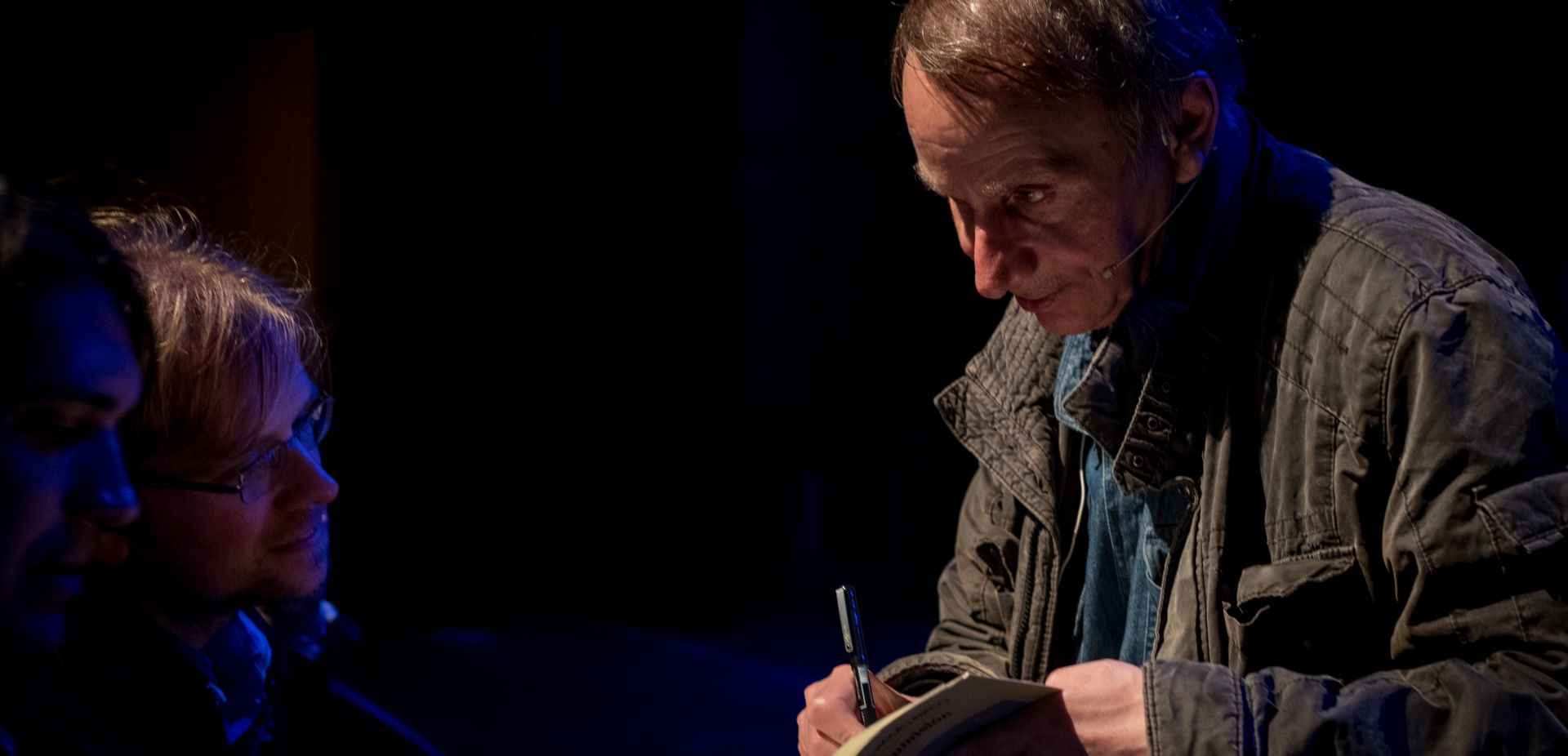
 SIGN UP TO OUR PAGE
SIGN UP TO OUR PAGE
 In turn, the novel “Serotonin”, in which – apart from the depression suggested by the title - there is a theme of farmers' protests against state policy, was supposed to anticipate the “yellow vest” movement, which broke out two weeks after the book was published in bookstores. After “Serotonin”, the faith in the writer’s prophetic abilities was strengthened even more and one of the great disappointments of the latest novel “Annihilations” is that Houellebecq did not foresee the war in Ukraine. And it would be neat - the French premiere was in January, Russia's attack on Ukraine in February.
In turn, the novel “Serotonin”, in which – apart from the depression suggested by the title - there is a theme of farmers' protests against state policy, was supposed to anticipate the “yellow vest” movement, which broke out two weeks after the book was published in bookstores. After “Serotonin”, the faith in the writer’s prophetic abilities was strengthened even more and one of the great disappointments of the latest novel “Annihilations” is that Houellebecq did not foresee the war in Ukraine. And it would be neat - the French premiere was in January, Russia's attack on Ukraine in February.